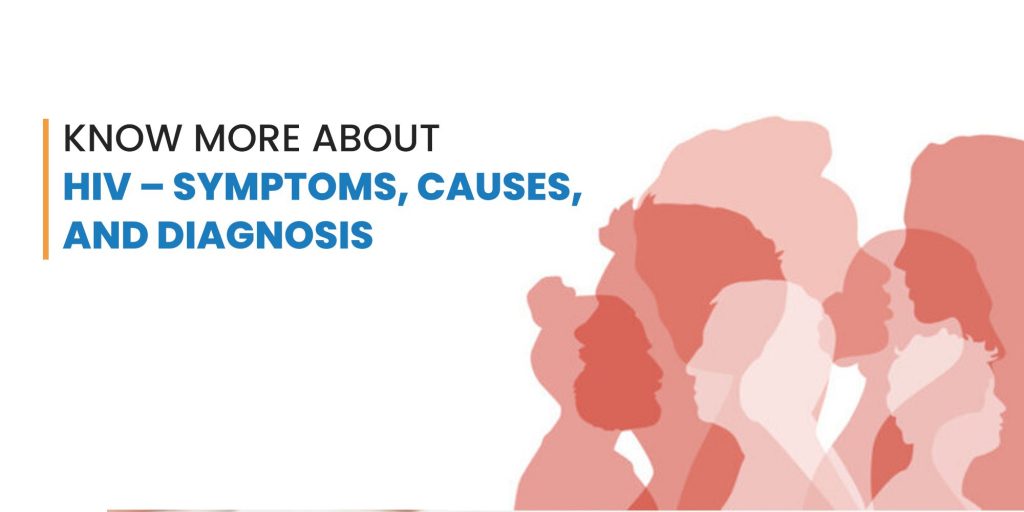HIV or Human Immunodeficiency Virus is a virus that strikes the immune system of the human body. It is a type of manageable chronic illness, and if left undetected and untreated, it can lead to a compromised immune system or Acquired Immune Deficiency Syndrome (AIDS). It is a type of advanced HIV infection.
Most persons will acquire severe immune weakness within ten years if HIV is not treated. At this time, the body cannot fight infection or prevent cancer development. However, some individuals infected with HIV may not exhibit any symptoms and may stay undiagnosed until the onset of AIDS symptoms, which can occur up to ten years later.
However, fifty percent or more of HIV-positive individuals may develop moderate flu-like symptoms within two to four weeks.
Early signs can include:
- Chills
- Fever
- Fatigue
- Joint Pain
- Headache
- Sore Throat
- Muscle Aches
- Swollen Glands (lymph nodes)
The appearance of HIV infection symptoms might range from days to weeks. They may leave on their own accord. Commonly, early HIV infection is misdiagnosed. If you suspect you have HIV, discuss it with your healthcare provider to know more about HIV testing.
Why do some HIV-positive individuals acquire AIDS?
Untreated HIV infection gradually weakens the immune system, making it more difficult to combat infections and malignancies. Before the development of effective HIV medications, all infected individuals had AIDS within ten years. People with HIV who receive good treatment today are unlikely to develop AIDS and have a life expectancy close to that of the general population. This is because these medications control the amount of virus in their blood (viral load) and protect their immune system.
What consequences does AIDS have?
A compromised immune system raises the likelihood of developing other illnesses. These consist of the following:
- Infections including tuberculosis (TB), CMV, candidiasis, cryptococcal meningitis, toxoplasmosis, and cryptosporidiosis
- Kaposi sarcoma and lymphoma (cancer)
- Wasting syndrome (weight loss, often with fever and diarrhea)
- Neurological problems
- Renal disease.
How do People become HIV-positive?
HIV is present in a person’s blood, sperm, vaginal fluid, and breast milk. It can be transmitted through contact with certain body fluids:
Unprotected intercourse without protection, sharing drug-injecting equipment, tattooing, piercing, and other operations with unsterile needles or fluid transfer from mother to child during pregnancy, childbirth, or breastfeeding, although this is uncommon (healthcare workers being accidentally jabbed with a needle).
It is essential to remember that HIV is not transmitted by kissing, exchanging cups and silverware, normal social contact, toilet seats, or mosquito bites.
When should I undergo an HIV test?
If you suspect you have HIV or are at risk for HIV, consult your physician about getting tested. Some individuals at high risk must be tested frequently.
You should undergo HIV testing if:
- You have had unprotected relations with a mate whose HIV status is anonymous or who has HIV but an undetectable viral load (also known as an “undetectable viral load”) in their blood.
- You have had unprotected intercourse with a person from a nation with high HIV infection rates.
- Your partner has recently visited a country with high HIV infection rates and may have had unprotected intercourse there.
- You have shared injecting equipment.
Early detection is crucial and can improve the prognosis of a disease over time. It is advisable to discuss other STIs with your doctor simultaneously.
How is HIV identified?
Blood Tests with ELISA kits
Your physician can request an HIV blood test. Blood is sent to a laboratory, where the results may take several days.
Rapid HIV tests
Your doctor may use a rapid test, which involves either a finger pinprick or saliva. This can give you a result within 10 to 20 minutes, but it will always need to be confirmed by laboratory tests.
How is HIV dealt with?
- There is no vaccine or treatment for HIV. Nonetheless, there are effective medicines that can prevent the transmission of HIV and the progression of AIDS.
- Therapies referred to as antiretroviral therapy (ART) help prevent the virus from replicating, resulting in a decreased viral burden. The treatment consists of a mix of medications.
- People with HIV who take ART daily- exactly as advised – and attain (and maintain) an undetectable viral load cannot transfer the virus s-e-xually to an HIV-negative partner.
Due to advances in treatment, HIV infection is now a manageable chronic condition.
How can I avoid contracting HIV?
The most effective methods of HIV prevention are:
- Use protection while having intercourse; never share needles, syringes, or other injecting equipment.
- Ensure to use sterile instruments while tattooing, piercing, and undergoing other treatments.
ELISA Kits for Detection of HIV (HIV AgAb ELISA kit)
Labsystems HIV Ag-Ab ELISA KIT is a qualitative immunoassay for detecting antigens & antibodies of HIV-1 & HIV-2 in the Human Serum or Plasma. This Sandwich ELISA offers optimal detection of antibodies against HIV 1 and HIV 2 along with detection of p24 antigen in Human Serum or Plasma.
Specific proteins gp41, gp36, gp120 & p24, representing immunodominant epitopes of HIV-1 and HIV-2, respectively, are coated into wells of microwell plates. The most promising thing about this kit is that it offers easy monitoring of step-by-step procedures with color-coded reagents and provides confidence while performing.



